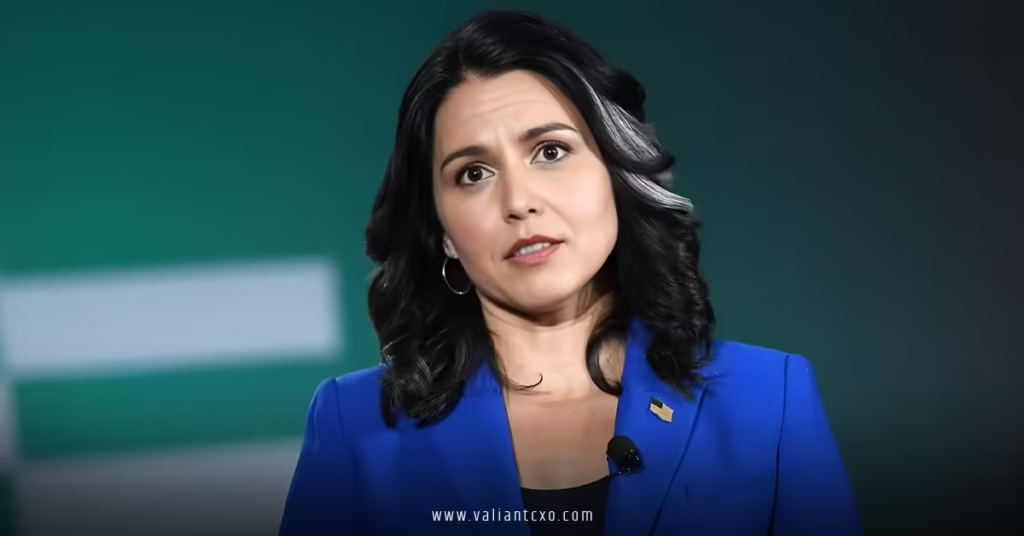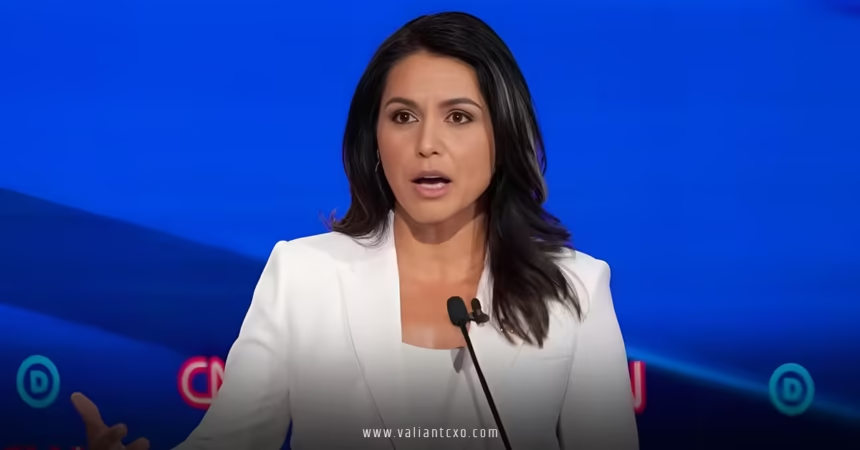Tulsi Gabbard confirmation hearing for director of national intelligence 2025 wasn’t just another Senate spectacle—it was a high-stakes showdown that had everyone from armchair pundits to grizzled intelligence vets glued to their screens. Picture this: a combat-hardened lieutenant colonel, fresh off the political battlefield, stepping into the lion’s den of Capitol Hill to defend her shot at overseeing America’s shadowy world of spies and secrets. On January 30, 2025, as the winter chill bit through Washington, D.C., the Senate Intelligence Committee turned the Dirksen Senate Office Building into a pressure cooker. And boy, did it boil over.
You know how these things go, right? Nominations for top jobs like Director of National Intelligence (DNI) are supposed to be rubber stamps for the president’s picks, but when your nominee’s resume includes flipping parties, cozying up to controversial figures abroad, and praising a famous whistleblower, things get spicy. Tulsi Gabbard, the Hawaii native with a surfboard vibe and a soldier’s steel spine, walked in ready to fight. But why her? And why now? Let’s unpack this like we’re dissecting a classified briefing—layer by layer, no fluff.
The Road to the Tulsi Gabbard Confirmation Hearing for Director of National Intelligence 2025
Before we dive into the fireworks of the hearing itself, let’s rewind a bit. President Donald Trump’s second term kicked off with a bang in January 2025, and his cabinet choices screamed “disruption.” On November 13, 2024—still riding the election high—Trump tapped Gabbard for DNI, the role that coordinates 18 intelligence agencies, from the CIA’s globe-trotting operatives to the NSA’s digital eavesdroppers. It’s the ultimate puppet master gig for U.S. intel, with a $76.5 billion budget and the power to shape how threats like cyber hacks or foreign meddling get flagged.
Gabbard’s backstory? It’s the stuff of a Hollywood biopic. Born in American Samoa, raised in Hawaii, she enlisted in the Hawaii Army National Guard at 17, deploying to Iraq as a medical specialist. By 2025, she was a lieutenant colonel, with stints on the House Armed Services and Foreign Affairs Committees under her belt. But here’s the rub: no direct intel experience. Zilch. Critics howled that she was a political wildcard, not a spook-savvy strategist. Supporters? They saw a breath of fresh air in a stuffy bureaucracy.
Trump’s pitch was simple: Gabbard would “depoliticize” the intel community, which he and his allies blamed for everything from the 2016 Russia probe to election interference claims. “She’s a warrior who gets it,” Trump tweeted pre-hearing, rallying his base. Rallies popped up outside the Capitol—think red hats chanting “Confirm Tulsi!”—while Democrats sharpened their knives, prepping questions on her past praise for Edward Snowden and a 2017 meet-up with Syrian leader Bashar al-Assad.
As the date loomed, tensions simmered. Senate Intelligence Chair Tom Cotton (R-AR) backed her hard, calling the ODNI (Office of the Director of National Intelligence) a “bloated beast” needing a trim. Vice Chair Mark Warner (D-VA) wasn’t sold, warning of “lapses in judgment.” By January 30, the stage was set for the Tulsi Gabbard confirmation hearing for director of national intelligence 2025—a clash of ideals, egos, and America’s security playbook.
Inside the Tulsi Gabbard Confirmation Hearing for Director of National Intelligence 2025: Tense Exchanges and Turning Points
Walk into that hearing room, and you’d feel the electricity. C-SPAN cameras rolled as Gabbard, poised in a crisp pantsuit, swore in at 10 a.m. sharp. The committee—bipartisan but bitterly divided—fired off questions for over two hours before going closed-door on classified stuff. It was less a polite Q&A and more a verbal cage match. Why? Because Gabbard’s views on endless wars, surveillance overreach, and foreign foes had senators from both sides seeing red.
Let’s break it down. First up: her military cred. Gabbard leaned in, eyes locked on the panel. “I’ve led troops in combat, coordinated intel on the ground in Iraq—that’s not theory; that’s real-world threat assessment.” She painted a vivid picture: dodging IEDs in the desert, piecing together enemy movements from fragmented reports. It humanized her, turning abstract quals into gritty anecdotes. But did it sway the skeptics? Not entirely.
The Snowden Showdown: Loyalty Tests and Leaky Secrets
Ah, Edward Snowden—the ghost haunting the Tulsi Gabbard confirmation hearing for director of national intelligence 2025. Remember him? The NSA contractor who in 2013 dumped a treasure trove of docs exposing U.S. surveillance overkill. To some, a hero; to most in intel circles, a traitor. Gabbard? She’d called him a “whistleblower” back in the day, praising his leaks for sparking privacy debates.
Senators pounced. Sen. James Lankford (R-OK) leaned forward: “Is Snowden a traitor, Ms. Gabbard?” The room hushed. She paused—classic politician move—then replied, “He broke the law, full stop. But those disclosures forced us to reckon with unconstitutional overreach. As DNI, I’d prioritize preventing leaks while safeguarding rights.” Smooth, but slippery. Sen. Michael Bennet (D-CO) wasn’t buying it: “This is where you need to answer straight—traitor or not?” Gabbard held firm: “I’m focused on the future, Senator. Rebuilding trust starts with transparency, not rehashing old fights.”
It was like watching a chess grandmaster dodge checkmate. Critics later called it evasive; fans hailed it as principled. Either way, it underscored the tightrope: How do you lead spies without alienating the very folks who blow the whistle on abuses? By hearing’s end, even Lankford flipped from “yes” to “questions remain,” per post-hearing chats.
Syria Shadows: That Assad Meeting and Chemical Weapons Doubts
Next bombshell: Gabbard’s 2017 Syria trip. She jetted to Damascus, shook hands with Assad—the guy accused of gassing his own people—and came back questioning U.S. intel on chemical attacks. Senators grilled her like a steak on the Fourth of July. Sen. Mark Kelly (D-AZ), an astronaut-turned-senator, pressed: “You met a cleric linked to suicide bomb threats. What were you thinking?”
Gabbard didn’t flinch. “I went to see the ground truth, Senator—not headlines. Assad’s regime was brutal, no doubt. But relying on contested MIT research? That raised flags for me.” She analogized it to fog-of-war in Iraq: “You don’t bomb based on whispers; you verify.” It was a mic-drop moment, but Warner fired back: “Your doubts echoed Russian propaganda. How can we trust you on Assad 2.0 threats?”
The exchange crackled with subtext. Democrats saw echoes of isolationism; Republicans, a welcome skepticism of forever wars. By the close, Gabbard pledged: “I’d enforce ironclad alliances while calling out allies’ BS—truth over tribe.” It bought her time, but the Syria scar lingered, a reminder that foreign jaunts can haunt domestic dreams.
Russia, Ukraine, and the NATO Knot: Geopolitical Grillings
No Tulsi Gabbard confirmation hearing for director of national intelligence 2025 would skip the elephant: her Ukraine takes. Gabbard had blamed NATO expansion for provoking Putin’s 2022 invasion, calling it a “proxy war” trap. With U.S. aid flowing and intel-sharing critical, this was red meat for hawks.
Sen. Angus King (I-ME) zeroed in: “Are you Putin’s puppet, Ms. Gabbard?” Oof. She shot back: “Absolutely not, Senator. I’ve fought terrorists, not appeased dictators. Ukraine gets our support, but endless escalation? That’s a recipe for World War III.” She invoked her deployments: “I’ve seen proxy fights devour lives—let’s prioritize diplomacy without ditching deterrence.”
It was rhetorical jujitsu—acknowledging aid while nodding to Trump’s “peace through strength.” Bennet pushed harder: “Your words mirror Kremlin lines. How will you handle intel on Russian moves?” Gabbard: “Objectively, every time. No politicization—facts lead, not agendas.” The committee split: Dems dubious, GOP nodding. Yet, it highlighted her anti-interventionist streak, a double-edged sword in a role demanding global hawk eyes.
The open session wrapped at noon, transitioning to classified turf. Leaks later hinted at deeper dives on Section 702 surveillance—Gabbard, once a repeal advocate, flipped to “uphold rights while keeping tools sharp.” Smart pivot, but it fueled flip-flopper whispers.

From Hearing Heat to Senate Verdict: Confirming the Tulsi Gabbard Confirmation Hearing for Director of National Intelligence 2025 Outcome
Fast-forward two weeks. The Intelligence Committee advanced her nomination narrowly, then the full Senate took the plunge on February 12, 2025. Vote: 52-48. All Dems nay, plus one GOP defector—Mitch McConnell (R-KY), who blasted her Snowden stance as a “lapse in trust.” Trump cheered from the Oval: “Tulsi’s in—America’s safer already!”
Sworn in that afternoon, Gabbard hit the ground running. Her oath? A vow to “protect secrets while honoring the Constitution.” It capped a saga that started as a long-shot and ended in triumph, but not without bruises. Why the narrow win? Party loyalty trumped qualms—GOP unity sealed it, despite Lankford’s wobbles.
Tulsi Gabbard’s Early DNI Days: Shaking Up the Spook World Post-Confirmation
By September 2025—seven months in—Gabbard’s tenure is a whirlwind of reforms and rifts. She’s slashed 40% of ODNI’s workforce, calling it a “bloat bust” to refocus on core threats. Think of it as Marie Kondo for intel: “Does this analyst spark joy… or just paperwork?” Critics cry gutting expertise; fans say it’s leaner, meaner ops.
She’s welcomed George “Wes” Street as National Clandestine Service Director, a vet with CIA chops. Bold moves on Ukraine too: Pledging to shutter 25-30 U.S.-funded biolabs there, warning of “pandemic fuel” from Deep State experiments. “The American people deserve protection from reckless risks,” she declared, echoing hearing vows of transparency.
And the drama? She’s torched Obama-era leaders—Obama, Comey, Clapper, Brennan—for allegedly rigging 2016 intel against Trump. Her July 23 report? A bombshell briefing naming names. At the National Conservatism Conference in September, she railed: “Weaponized intel erodes freedom—I’m here to rebuild it.”
Public spats aside, her March 25 testimony to the Senate Select Committee on Intelligence showed poise, updating on cyber threats and China hawks. It’s bursty—calm briefings punctured by headline-grabbers like her fiery eulogy at Charlie Kirk’s memorial: “Charlie was a warrior for truth; his voice echoes louder now.” Love her or loathe her, Gabbard’s shaking the spy tree.
Public Pulse and Partisan Plays: Reactions to the Tulsi Gabbard Confirmation Hearing for Director of National Intelligence 2025
The Tulsi Gabbard confirmation hearing for director of national intelligence 2025 lit social media ablaze. X (formerly Twitter) buzzed with #ConfirmTulsi rallies—vets sharing deployment tales, peaceniks cheering her war-weary wisdom. One viral clip? Her Snowden sidestep, racking 5 million views, split comments 60-40 pro.
Mainstream media? A mixed bag. CBS News coverage hailed the confirmation as a “patriot pivot”; Politico dissected the drama, noting McConnell’s lone nay as “GOP grumble.” Progressives fumed over Assad echoes; conservatives crowed about draining the swamp.
Polls post-hearing? A Pew snapshot showed 48% approval for her nod, up from 42% pre-vote—proof controversy can convert. On the Hill, allies like Sen. John Cornyn (R-TX) flipped to yes, praising her “fearless spirit.” Detractors? Warner’s op-ed warned of “trust erosion.” It’s the classic D.C. divide: heroes to some, hazards to others.
Rhetorically, why does this matter to you? In a world of deepfakes and drone wars, your DNI shapes what threats wake you at night. Gabbard’s style—blunt, boundary-pushing—forces us to ask: Is shaking the system salvation or sabotage?
Broader Ripples: How the Tulsi Gabbard Confirmation Hearing for Director of National Intelligence 2025 Reshapes U.S. Security
Zoom out, and the hearing’s echoes reverberate. It’s turbocharged Project 2025 reforms, updating EO 12333 for tighter intel oversight. Gabbard’s pushed for “constitutional guardrails” on surveillance, balancing FISA renewals with privacy wins. Her Ukraine biolab pledge? A geopolitical gut-punch, signaling Trump’s “America First” intel pivot—less endless aid, more targeted truth-seeking.
Domestically, she’s spotlighted “politicization,” vowing unbiased briefings. Early wins: Streamlined cyber defenses against Chinese hacks, per DNI.gov updates. But hurdles loom—lawsuits over workforce cuts, Dem probes into her Obama report. It’s a high-wire act: Reform without rupture.
Analogize it to a military op: Gabbard’s the point woman scouting enemy lines, dodging friendly fire. Her success? It could redefine DNI as disruptor-in-chief, not status-quo sentinel.
Wrapping the Tulsi Gabbard Confirmation Hearing for Director of National Intelligence 2025 Saga
So, there you have it—the Tulsi Gabbard confirmation hearing for director of national intelligence 2025 was a crucible that forged a controversial commander into America’s intel helm. From Snowden skirmishes to Syria shadows, it tested her mettle and mirrored our nation’s fault lines: security vs. scrutiny, intervention vs. isolation. Confirmed 52-48, she’s since wielded the gavel with gusto—slashing bloat, slamming biolabs, and spotlighting scandals.
What sticks? Her unyielding vibe: A soldier’s grit meets a stateswoman’s savvy. As we navigate 2025’s tempests—AI espionage, election echoes—Gabbard’s proving the hearing was no endpoint, but a launchpad. Dive deeper yourself; question the briefings, champion the truths. After all, in the intel game, vigilance isn’t optional—it’s oxygen. What’s your take? Hit the comments; let’s decode this together.
FAQs
What were the biggest controversies in the Tulsi Gabbard confirmation hearing for director of national intelligence 2025?
Oh, plenty! Senators hammered her on praising Edward Snowden, her Assad meeting, and Ukraine comments. She defended with military anecdotes, stressing transparency over old grudges.
When did the Tulsi Gabbard confirmation hearing for director of national intelligence 2025 take place, and what was the outcome?
It unfolded on January 30, 2025, before the Senate Intelligence Committee. She sailed through to a 52-48 full Senate confirmation on February 12—narrow, but a win.
How has Tulsi Gabbard’s role as DNI evolved since the Tulsi Gabbard confirmation hearing for director of national intelligence 2025?
Seven months on, she’s cut ODNI staff by 40%, pledged Ukraine biolab closures, and blasted past intel leaders. It’s reform on steroids, with transparency as her battle cry.
Why did some Republicans oppose the Tulsi Gabbard confirmation hearing for director of national intelligence 2025 nominee?
Mitch McConnell cited “lapses in judgment” on Snowden and Russia. Even James Lankford wavered post-hearing, fearing trust issues in secret-keeping.
What can we expect next from Tulsi Gabbard after her Tulsi Gabbard confirmation hearing for director of national intelligence 2025 success?
More shake-ups: Expect tighter surveillance rules, bolder foreign probes, and clashes with critics. She’s vowed “peace through strength”—watch for intel-driven diplomacy wins.
For More Updates !! : valiantcxo.com


